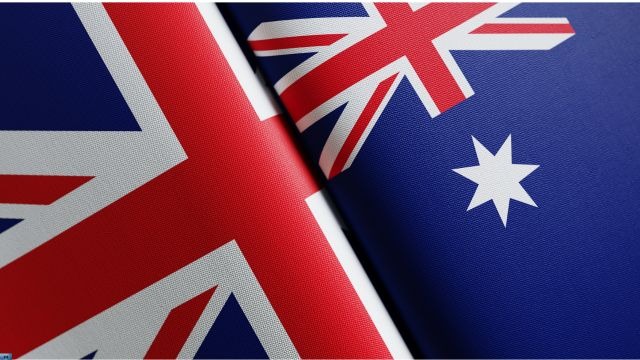Australia’s consumer price index (CPI) eased to 2.4% year-on-year in February. This was a surprise as the market forecast stood at 2.5%, which would have been unchanged from January. UK CPI also came in lower than expected.
Earlier today, Australia announced its lowest annualized rate of inflation since November 2024. Inflation decelerated across a range of sub-categories, including gasoline, electricity and food. The Reserve Bank of Australia’s (RBA) preferred core inflation indicator, the trimmed mean, decreased to 2.7% year-on-year, down from 2.8% in January.
Today’s monthly inflation report does not provide the full inflation picture, as the quarterly inflation report is more comprehensive. Still, the February inflation report is positive news and will support the case for the RBA to continue cutting rates. The RBA meets next on April 1, but is unlikely to cut rates just before the national election, which must be called by May 17.
The RBA is more likely to consider lowering rates at its May 20 meeting, which would be shortly after the election. The crucial factor in the May decision will be the quarterly inflation report at the end of April – a decrease in inflation would bolster the case for a May rate cut. The central bank joined finally joined its peers in easing rates at the February meeting but Bank policymakers remain concerned about the upside risk of inflation, which means we’re unlikely to see a series of rate cuts this year.
Australian Dollar and Stock Market Climb
The AUD/USD currency pair has gained ground for a third straight day. In the European session, the Australian dollar is trading at 0.6321, up 0.30%.
The benchmark Australian index, the S&P/ASX 200, posted solid gains, rising 56.50 points (0.71%) and closed the day at 7,999.
UK Inflation Drops to 2.8% as Expected
The UK consumer price index fell to 2.8% year-over year in February, down from 3.0% in January and just shy of the market estimate of 2.9%. The reading was, however, in line with the Bank of England forecast.
The decline was driven by lower prices for clothing and housing. Services inflation, which has been persistently high and a constant worry for the Bank of England, remained unchanged at 5.0%. On a month-over-month basis, CPI gained 0.4%, up from 0.1% in January and just below the market estimate of 0.5%. Core CPI, which excludes food and energy and is a better gauge of long-term inflation, fell from 3.7% to 3.5%.
The BoE will be pleased with the drop in inflation, which provides support for another rate cut. The central bank maintained rates at last week’s rate meeting, noting its concern over growing “global trade policy uncertainty” and specifically mentioning US tariff policy. Bank policymakers will be keeping a close eye on developments with US tariffs, which have escalated trade tensions and could boost inflation.
British Pound Declines, Stock Market Shrugs
In the Forex market, the British Pound lost ground after the UK inflation report. The GBP/USD currency pair is down 0.35% in the European session, trading at 1.2898.
The FTSE 100 Index, which is the benchmark index for the UK stock markets, is higher is unchanged in early trading. In the European session, the index is down 3.07 points (0.04%) at 8660.70.


